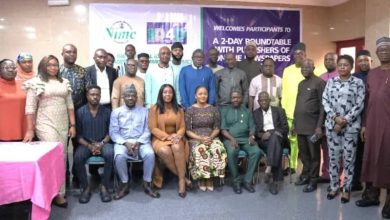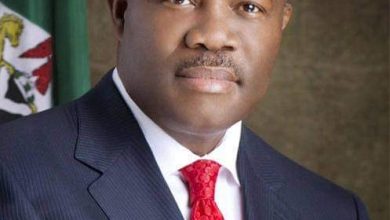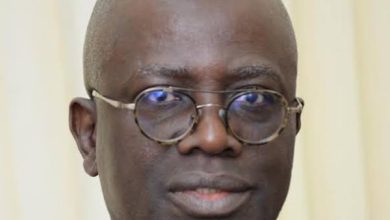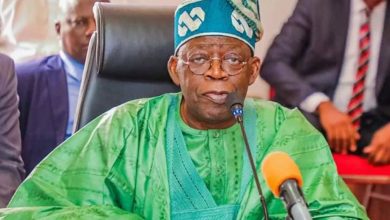Unclaimed Funds Trust Fund: We Can Still Get It Right

The groundswell of voices and reactions against the federal government’s decision to borrow from unclaimed funds for infrastructural development should have been expected and that is all the difference there is, to what obtains elsewhere by records of fact. What is holy grail to other people is sacrilegious to us for valid fears.
Escheatments are, and have long been part and parcel of saner climes where systems work! And systems work basically because everyone is genuinely interested in the welfare of the next person who does not have to be a blood relation, friend, business partner, or even close by any means at all. Thriving societies we admire and often wish to be part of are built on the fundamental trust factor. We all progress if everyone does their own part according to the rules and without let or hindrance of any kind. Trust is a powerful phenomenon.
So why all the opposition to the borrowing idea? Lack of TRUST, without a doubt! But this is only another reflection of that real problem. Nigeria is a system of gross anomalies across different facets of our lives. We built this place and let no one be consoled that they have no hand in the failures largely characterizing the country today. You, me, us, we, all of us, yes, we are responsible for where we are today for often failing to do what is right and having the knack for doing what is wrong for selfish reasons. It should be instructive therefore, and not difficult to see, how so hard it is for the government struggling to sell trust to the people in the composition of the governing board of the proposed trust fund in the 2020 finance Act. This overkill in administrative approach (composition) has become a recurring feature of our governance at almost every type and level of our public institutions and it reflects poorly on our trust level.
Part XV, sections 76-79 of the Act lists a number of public officers obviously in the usual style to passing them off on the weight of their offices, as trustworthy persons. But are they really? I leave that to conjecture. The proof of trustworthiness is however not often by the title of office, but the records of achievement of the person easily verifiable by the whole world. There are a number of proven factors in the test of trustworthiness: performance track record, consistent transparency, diligent accountability and overt fear of God. I leave these yet again for people to make their own judgements. But I will make my own call here, as it is the subject of this piece, in the following concerns and an attempt to share a few thoughts on how we can surmount the challenges as highlighted hitherto.
Concern 1: Weak Systems
If we can be sincere with ourselves for once, this provision in the Act cannot actually be, and should not have been, intended for any reasonable results or meaningful expectations in the FY 2021. WHY THE RUSH??? Government is in desperation. It is undoubtedly an agenda to have access to quick and ready cash, but on the breach of what is the universal and genuine approach. A trust in perpetuity especially in the circumstance that we are, and for the purpose it is meant, raises a number of questions that would probably not make its setting up feasible before 2022. I would rather refrain from technicalities, but for appropriate context, and those referencing other countries’ unclaimed property laws, I will encourage them to study their respective modus operandi. Simple fact is that we will not get results from the way and manner we seem to keep putting our carts before our horses almost at every turn. Our systems are often built to fail, not because we don’t know how to, but because we choose not to follow the due processes, and most times for selfish, myopic, and ephemeral interests!
Concern 2: Structural Absolutism
Next concern naturally will be the system of accountability – a governance framework that supports consistent feedback to stakeholders, not just a parade of official heavyweights. How accountable has this particular government and past governments as well, at all levels, been, in the stewardship of the social contract? Personally I need no other test as a devout student of Thomas Bayes in making my call on this, and so you could say I am a Bayesian thinker – twice beaten and forever shy! The scriptures also bear me witness and provide apt guidance in this wise – Luke 16:10KJV. Whatever gets measured gets done is the famous Peter Drucker quote and if this prevalent culture of poor or outright non-existent performance feedback mechanism persists, then we have no joy.

Concern 3: Transparency
I will close the concerns thoughts on transparency. Transparency has been widely acknowledged as one of the most important factors in performance. But which system in Nigeria today can we confidently point to as transparent? Or possibly on a scale of 1 to 10 rate as high as 3, by my own measure? This again provides me the opportunity to raise the issue of information asymmetry as the bane of our financial market in particular. Too few people who actually should be in the position of trust as fiduciaries have too much information kept away from the majority that requires the same information for their respective benefits and for the greater good of the society. I probably cannot say this too often but if we’re sincerely desirous of progress as a nation, information asymmetry is the starting point of that much required journey of corrections, by both public and private sector players.
Implications
At the current estimated $100billion yearly requirement, infrastructural development in Nigeria today is undoubtedly a major factor in our long elusive economic emancipation. But again are we addressing it from the appropriate channels? We have an administration which by every policy initiative and implementation exhibits overwhelming political and economic extraction. This idea of getting money at any and all costs, from just any source to centrally finance infrastructure is not sustainable in the 21st century. With the amount of debts hanging around our neck presently like the proverbial albatross, no one should need a crystal ball to see that this trust fund as proposed for infrastructure is a long shot from target as well as the reality on ground and couldn’t have been comprehensively thought through. The banks definitely will not be spared in this, so I guess the representation of the bankers’ committee on the board is to calm this tsunami on the industry? Thankfully unclaimed insurance and pensions benefits are excluded. Within the past week however, I have observed an upsurge in activities of shareholders making serious efforts to claim whatever they have either ignored or unable to conclude by way of processing, in outstanding dividends, but the pervasive challenge of weak systems yet again rears its ugly head in the obstacle that some banks cannot operationally complete the NIBSS uploading of the E-Dividend forms! Chaos all over.
What Nigeria needs much more than ever before now is politically and economically inclusive institutions that will encourage private enterprise through well choreographed policies, in doing well at what they know how to do best. Pray, someone tell me, with the gaping financial hole facing us as a nation, what sustainable infrastructure can NGN900billion provide across the country of more than 200million people? Are we getting our development needs and projections right? Or could government yet be planning to take care of recurrent frivolities on account of this trust fund? Perhaps I’m the only one being cynical, or overambitious, or just over-reactive on this matter? Aggregating unclaimed private property/funds in a hurry under a bogus governing body is certainly not such an idea we should be glorifying now. The CACovid initiative sounded off on a very good note but how is the melody going today?
Let me finally close this with a few reminders and recommendations just so that the raising of voices don’t all amount to naysaying.
Reminders
A public trust cannot be blind in any form, so we need clarity on this idea of subventing the crisis intervention fund by the unclaimed funds trust fund;
Trusts cannot make secret profits;
Trusts cannot make secret profits – yes I know, it’s a deliberate repetition;
Objects of trusts must be certain – ALL!;
Beneficiaries of this type of trust through their representatives must be apprised of the affairs of the trust regularly;
This probably isn’t necessary to mention, but the trust must establish a robust central database of ALL beneficiaries with direct and easy accessibility for seamless claims;
Breach of trust is criminal.
Recommendations
The trust assets should be in the custody of an independent and duly appointed agent, NOT the governing board nor the DMO;
Investing the trust fund is a totally different ball game from administering it;
The investments of the trust should be made public. Borrowing from the trust should not be mistaken as the same thing as borrowing under the government’s bonds issuance programme;
Such infrastructural investments as proposed should be revenue-generating and thus self-sustaining;
The performance of the trust should be reported publicly like is done by the NSIA;
The governing council can be prosecuted jointly and severally in contrast to what we have in the new BOFIA;
Engage tested professionals through merit-driven processes and best practice standards in investment decision making;
Optimal non-linear contracts should dominate the operations of the trust to check agency issues;
Members of the board should act consistently with Nigeria and Nigerians’ interests first. That means at all times;
I know 9 above might come across as cynical to many, so I will put it in another way: members of the board should remember always that there is posterity.
My final take is that this administration still has enough runway to lift its trust quotient and reputation by this gust that the proposed trust fund represents underneath its wings. Let the pilots go by the instructions manual this once to avoid yet another recall to base, let alone a fatal mishap. One unique thing about us Nigerians is that yes, we can easily be cynical with the benefits of countless unimpressive hind sights, but yes again we can be quite a hopeful people in the face of many untoward situations that we can still get things right.
The groundswell of voices and reactions against the federal government’s decision to borrow from unclaimed funds for infrastructural development should have been expected and that is all the difference there is, to what obtains elsewhere by records of fact. What is holy grail to other people is sacrilegious to us for valid fears.
Escheatments are, and have long been part and parcel of saner climes where systems work! And systems work basically because everyone is genuinely interested in the welfare of the next person who does not have to be a blood relation, friend, business partner, or even close by any means at all. Thriving societies we admire and often wish to be part of are built on the fundamental trust factor. We all progress if everyone does their own part according to the rules and without let or hindrance of any kind. Trust is a powerful phenomenon.
So why all the opposition to the borrowing idea? Lack of TRUST, without a doubt! But this is only another reflection of that real problem. Nigeria is a system of gross anomalies across different facets of our lives. We built this place and let no one be consoled that they have no hand in the failures largely characterizing the country today. You, me, us, we, all of us, yes, we are responsible for where we are today for often failing to do what is right and having the knack for doing what is wrong for selfish reasons. It should be instructive therefore, and not difficult to see, how so hard it is for the government struggling to sell trust to the people in the composition of the governing board of the proposed trust fund in the 2020 finance Act. This overkill in administrative approach (composition) has become a recurring feature of our governance at almost every type and level of our public institutions and it reflects poorly on our trust level.
Part XV, sections 76-79 of the Act lists a number of public officers obviously in the usual style to passing them off on the weight of their offices, as trustworthy persons. But are they really? I leave that to conjecture. The proof of trustworthiness is however not often by the title of office, but the records of achievement of the person easily verifiable by the whole world. There are a number of proven factors in the test of trustworthiness: performance track record, consistent transparency, diligent accountability and overt fear of God. I leave these yet again for people to make their own judgements. But I will make my own call here, as it is the subject of this piece, in the following concerns and an attempt to share a few thoughts on how we can surmount the challenges as highlighted hitherto.
Concern 1: Weak Systems
If we can be sincere with ourselves for once, this provision in the Act cannot actually be, and should not have been, intended for any reasonable results or meaningful expectations in the FY 2021. WHY THE RUSH??? Government is in desperation. It is undoubtedly an agenda to have access to quick and ready cash, but on the breach of what is the universal and genuine approach. A trust in perpetuity especially in the circumstance that we are, and for the purpose it is meant, raises a number of questions that would probably not make its setting up feasible before 2022. I would rather refrain from technicalities, but for appropriate context, and those referencing other countries’ unclaimed property laws, I will encourage them to study their respective modus operandi. Simple fact is that we will not get results from the way and manner we seem to keep putting our carts before our horses almost at every turn. Our systems are often built to fail, not because we don’t know how to, but because we choose not to follow the due processes, and most times for selfish, myopic, and ephemeral interests!
Concern 2: Structural Absolutism
Next concern naturally will be the system of accountability – a governance framework that supports consistent feedback to stakeholders, not just a parade of official heavyweights. How accountable has this particular government and past governments as well, at all levels, been, in the stewardship of the social contract? Personally I need no other test as a devout student of Thomas Bayes in making my call on this, and so you could say I am a Bayesian thinker – twice beaten and forever shy! The scriptures also bear me witness and provide apt guidance in this wise – Luke 16:10KJV. Whatever gets measured gets done is the famous Peter Drucker quote and if this prevalent culture of poor or outright non-existent performance feedback mechanism persists, then we have no joy.

Concern 3: Transparency
I will close the concerns thoughts on transparency. Transparency has been widely acknowledged as one of the most important factors in performance. But which system in Nigeria today can we confidently point to as transparent? Or possibly on a scale of 1 to 10 rate as high as 3, by my own measure? This again provides me the opportunity to raise the issue of information asymmetry as the bane of our financial market in particular. Too few people who actually should be in the position of trust as fiduciaries have too much information kept away from the majority that requires the same information for their respective benefits and for the greater good of the society. I probably cannot say this too often but if we’re sincerely desirous of progress as a nation, information asymmetry is the starting point of that much required journey of corrections, by both public and private sector players.
Implications
At the current estimated $100billion yearly requirement, infrastructural development in Nigeria today is undoubtedly a major factor in our long elusive economic emancipation. But again are we addressing it from the appropriate channels? We have an administration which by every policy initiative and implementation exhibits overwhelming political and economic extraction. This idea of getting money at any and all costs, from just any source to centrally finance infrastructure is not sustainable in the 21st century. With the amount of debts hanging around our neck presently like the proverbial albatross, no one should need a crystal ball to see that this trust fund as proposed for infrastructure is a long shot from target as well as the reality on ground and couldn’t have been comprehensively thought through. The banks definitely will not be spared in this, so I guess the representation of the bankers’ committee on the board is to calm this tsunami on the industry? Thankfully unclaimed insurance and pensions benefits are excluded. Within the past week however, I have observed an upsurge in activities of shareholders making serious efforts to claim whatever they have either ignored or unable to conclude by way of processing, in outstanding dividends, but the pervasive challenge of weak systems yet again rears its ugly head in the obstacle that some banks cannot operationally complete the NIBSS uploading of the E-Dividend forms! Chaos all over.
What Nigeria needs much more than ever before now is politically and economically inclusive institutions that will encourage private enterprise through well choreographed policies, in doing well at what they know how to do best. Pray, someone tell me, with the gaping financial hole facing us as a nation, what sustainable infrastructure can NGN900billion provide across the country of more than 200million people? Are we getting our development needs and projections right? Or could government yet be planning to take care of recurrent frivolities on account of this trust fund? Perhaps I’m the only one being cynical, or overambitious, or just over-reactive on this matter? Aggregating unclaimed private property/funds in a hurry under a bogus governing body is certainly not such an idea we should be glorifying now. The CACovid initiative sounded off on a very good note but how is the melody going today?
Let me finally close this with a few reminders and recommendations just so that the raising of voices don’t all amount to naysaying.
Reminders
A public trust cannot be blind in any form, so we need clarity on this idea of subventing the crisis intervention fund by the unclaimed funds trust fund;
Trusts cannot make secret profits;
Trusts cannot make secret profits – yes I know, it’s a deliberate repetition;
Objects of trusts must be certain – ALL!;
Beneficiaries of this type of trust through their representatives must be apprised of the affairs of the trust regularly;
This probably isn’t necessary to mention, but the trust must establish a robust central database of ALL beneficiaries with direct and easy accessibility for seamless claims;
Breach of trust is criminal.
Recommendations
The trust assets should be in the custody of an independent and duly appointed agent, NOT the governing board nor the DMO;
Investing the trust fund is a totally different ball game from administering it;
The investments of the trust should be made public. Borrowing from the trust should not be mistaken as the same thing as borrowing under the government’s bonds issuance programme;
Such infrastructural investments as proposed should be revenue-generating and thus self-sustaining;
The performance of the trust should be reported publicly like is done by the NSIA;
The governing council can be prosecuted jointly and severally in contrast to what we have in the new BOFIA;
Engage tested professionals through merit-driven processes and best practice standards in investment decision making;
Optimal non-linear contracts should dominate the operations of the trust to check agency issues;
Members of the board should act consistently with Nigeria and Nigerians’ interests first. That means at all times;
I know 9 above might come across as cynical to many, so I will put it in another way: members of the board should remember always that there is posterity.
My final take is that this administration still has enough runway to lift its trust quotient and reputation by this gust that the proposed trust fund represents underneath its wings. Let the pilots go by the instructions manual this once to avoid yet another recall to base, let alone a fatal mishap. One unique thing about us Nigerians is that yes, we can easily be cynical with the benefits of countless unimpressive hind sights, but yes again we can be quite a hopeful people in the face of many untoward situations that we can still get things right.






